Steeped in rich culture and tradition, the small African kingdom of Eswatini is a haven for festivities that celebrate its heritage. As you plan your trip, you’ll find that the country’s cultural festivals are a perfect complement to its safari destinations and idyllic scenery.
From the iconic Umhlanga Reed Dance to the exhilarating Buganu Festival, Eswatini’s traditional celebrations offer you an authentic window into the country’s cultural practices that have been preserved for generations. By experiencing these unique festivals, you’ll gain a deeper understanding of the significance of these events in one of the world’s last absolute monarchies.
As you explore Eswatini’s cultural landscape, you’ll discover why this nation is considered a cultural gem in southern Africa, offering travel experiences that can’t be found elsewhere.
Discovering Eswatini’s Rich Cultural Heritage
As one of the world’s last absolute monarchies, Eswatini presents a fascinating cultural landscape. The country’s rich cultural heritage is deeply intertwined with its history and the pride of its people. Eswatini’s cultural identity is preserved and showcased through various festivals and celebrations, offering visitors a unique glimpse into the country’s traditions.
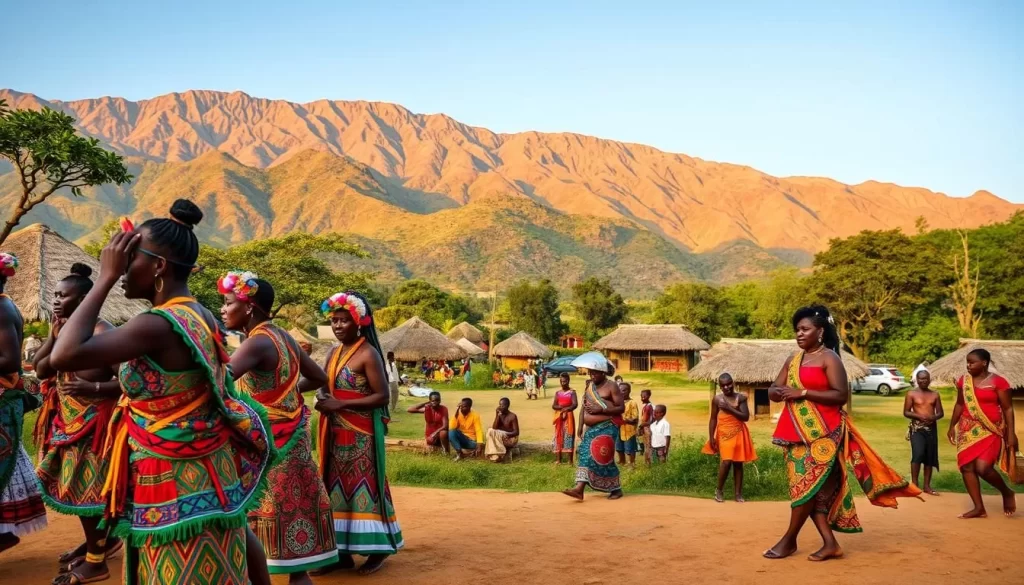
The Kingdom’s Cultural Significance
Eswatini’s cultural practices have been shaped by its history and the role of the monarchy. The king’s influence extends beyond politics, impacting daily life and cultural traditions. For instance, the decision to change the country’s name from Swaziland to Eswatini in 2018 underscored the monarch’s significant role in shaping the nation’s identity. This change highlighted the country’s commitment to its cultural heritage and preservation of traditions.
- The unique position of Eswatini as an absolute monarchy influences the preservation of its cultural heritage.
- The historical context of Eswatini’s cultural practices has allowed them to evolve while maintaining their core significance.
- The role of the royal family is crucial in promoting and maintaining cultural heritage through festivals and celebrations.
Why Eswatini’s Festivals Stand Out
Eswatini’s festivals offer a more authentic cultural experience compared to celebrations in other southern African countries. The vibrant culture and hospitality of the Swazi people create a welcoming atmosphere for visitors. The balance between traditional practices and modern influences in Eswatini’s celebrations makes them particularly noteworthy. Whether it’s the Umhlanga Reed Dance or the Incwala Harvest Festival, each event provides a unique insight into the country’s rich cultural heritage and the significance of its celebrations.
By participating in these cultural events, you can gain a deeper understanding of Eswatini’s heritage and the importance of its culture in the daily lives of its people. The country’s commitment to preserving its traditions while embracing modernity makes Eswatini a compelling destination in southern Africa.
Umhlanga Reed Dance: A Celebration of Tradition
Every year, the kingdom of Eswatini comes alive with the Umhlanga Reed Dance, a spectacle that embodies the nation’s rich heritage. This vibrant festival, steeped in Swati cultural traditions, attracts tens of thousands of Swazi people and visitors from around the world.
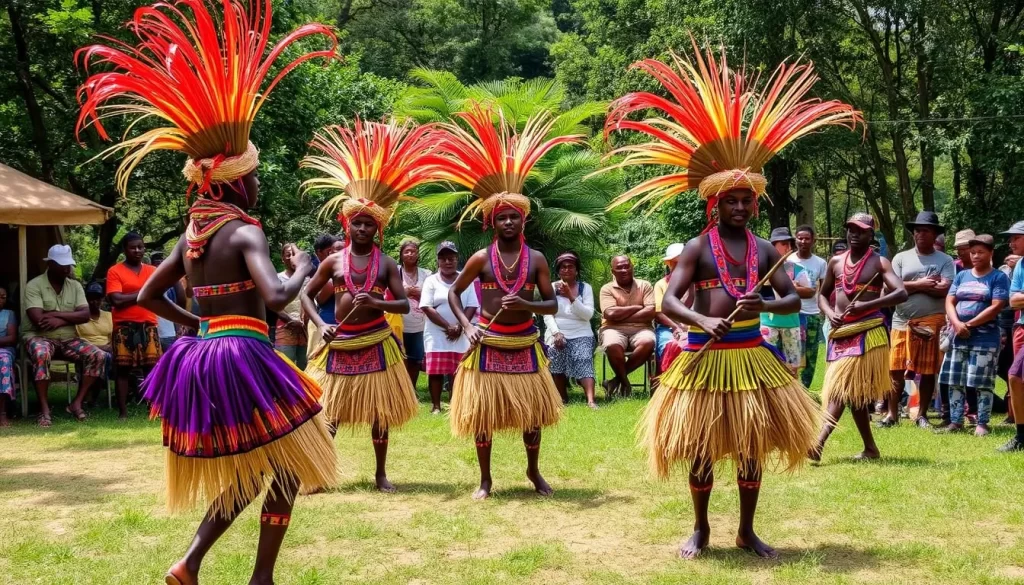
The History and Significance
The Umhlanga Reed Dance is one of Africa’s most famous traditional ceremonies, practiced for generations. It serves to reinforce cultural values of chastity and loyalty to the Queen Mother (Indlovukazi) through symbolic labor. The ceremony has remained significant despite declining global interest in indigenous ceremonies, showcasing the resilience of Swati cultural practices.
The festival has evolved over time, incorporating contemporary issues such as HIV education while maintaining its traditional core. This blend of tradition and modernity makes the Umhlanga Reed Dance a unique and fascinating event.
What to Expect During the Festival
During the Umhlanga Reed Dance, you can expect a spectacular display of pageantry, song, and dance. The festival takes place over eight days, with the most impressive displays occurring on day seven, when regiments of girls and women dance, sing, and ululate. The event is a testament to the rich cultural heritage of the Swazi people, with participants dressed in colorful attire, performing traditional dances.
The atmosphere is electric, with thousands of participants and spectators coming together to celebrate Swati traditions. You will have the opportunity to witness the Reed Dance and experience the vibrant culture firsthand.
Visitor Information and Etiquette
As a visitor, it’s essential to be respectful of the local customs and traditions. The best time to visit is on day seven for the most spectacular displays. Be mindful of your surroundings and follow local guidelines for photography and participation. Understanding and respecting the cultural significance of the event will enhance your experience and that of those around you.
By being considerate and prepared, you can fully immerse yourself in the Umhlanga Reed Dance and create lasting memories of your visit to Eswatini.
Incwala Harvest Festival: The Festival of First Fruits

The Incwala Harvest Festival, a centuries-old tradition, is a celebration of kingship, cleansing, and renewal. This significant cultural event in Eswatini is steeped in spiritual power and is considered the most sacred event in the country’s cultural calendar.
The Sacred Kingship Ceremony
The Incwala festival revolves around the king, who plays a central role in the ceremony, reinforcing the monarchy’s spiritual and cultural authority. The king’s participation is crucial to the success of the festival, as he is believed to embody the nation’s spiritual well-being.
The ceremony is a complex, multi-day event that spans several days, with various rituals and traditions taking place during each phase. The exact dates of the festival are determined by ancestral astrology, typically falling around the last week of December or the first week of January.
Festival Rituals and Traditions
The Incwala festival is rich in symbolism, with various elements of the ceremony holding deep meaning. The sacred plants, ritual objects, and ceremonial actions all play a significant role in the events that unfold during the festival. As a visitor, you can experience the public portions of the festival while respecting the private, sacred aspects.
Best Ways to Experience Incwala
To make the most of your visit, plan your trip around the time of the Incwala festival, which usually takes place in late December or early January. As a visitor, you can witness the public aspects of the ceremony, gaining insight into the nation’s rich cultural heritage and spiritual practices. Be sure to respect the sacred nature of the events and traditions.
By attending the Incwala Harvest festival, you can connect with the local culture and experience the nation’s vibrant traditions firsthand. This significant cultural event is a unique opportunity to witness the connection between modern Swazi people and their ancestral traditions, reinforcing national identity and marking the beginning of a new year in the traditional calendar.
Buganu (Marula) Festival: Celebrating the Marula Fruit
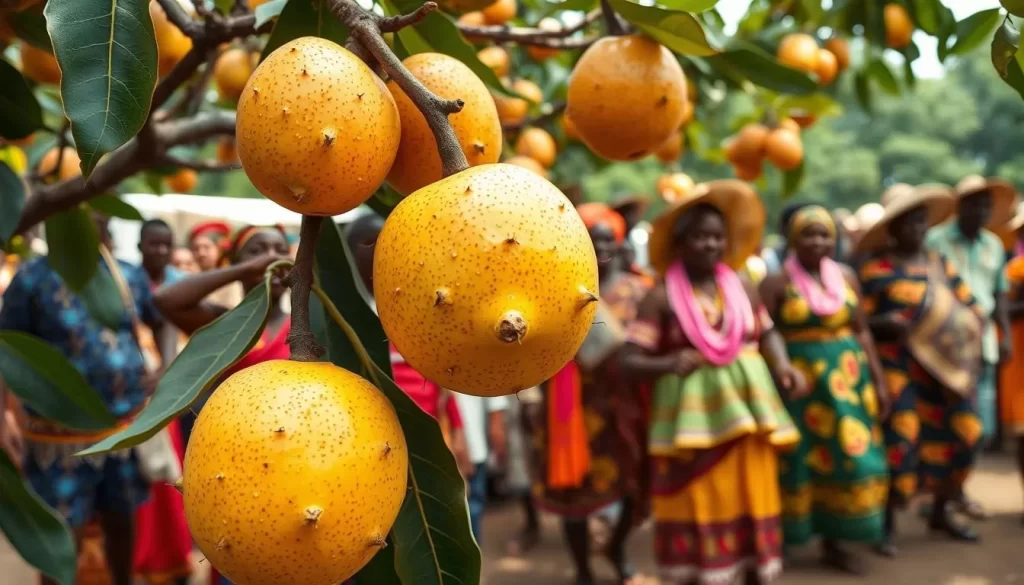
In the heart of Eswatini, a unique celebration unfolds as the marula fruit ripens, marking the beginning of the Buganu Festival. This vibrant event is a testament to the cultural and economic significance of the marula fruit in Swazi society.
The Significance of the Marula Fruit
The marula fruit is not just a staple in Eswatini; it’s a symbol of cultural heritage and economic opportunity. The fruit, once ripe, is used to brew marula beer or buganu, a potent alcoholic beverage that plays a central role in Swazi social gatherings. The marula fruit’s importance extends to its connection with local wildlife, particularly elephants, which feed on the fruit, highlighting the intricate balance between nature and culture in this region.
Festival Activities and Traditions
During the Buganu Festival, visitors can immerse themselves in various traditional dances and songs, as well as ceremonies that honor the marula fruit. The festival is a time of joy and celebration, reflecting the community’s gratitude for the harvest. It’s an opportunity to experience the rich cultural tapestry of Eswatini firsthand.
Where and When to Attend
The Buganu Festival typically takes place in February and March, coinciding with the marula season. The main events are held at the Ebuhleni Royal Residence, where the Queen Mother’s arrival marks the official commencement of the festival. Visitors can plan their trip to Eswatini around this time to partake in the festivities and witness the royal ceremonies, making for a memorable experience.
MTN Bushfire Festival: Modern Celebrations in Swaziland: Top Festivals to Check Out When Visiting
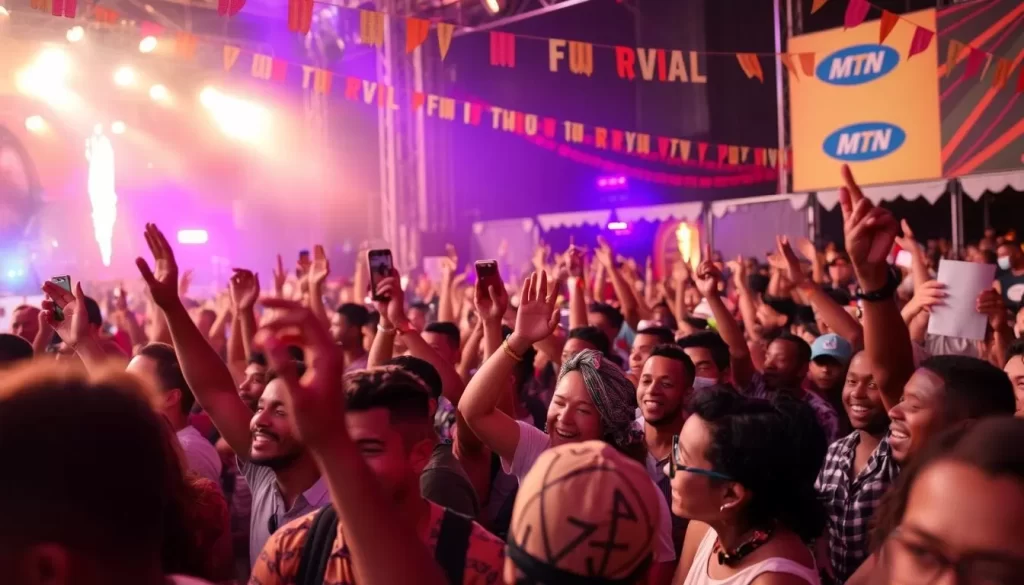
The MTN Bushfire Festival is one of Africa’s most expansive multicultural gatherings, celebrating the transformative power of arts and culture. Held annually at the end of May in the picturesque Malkerns Valley, this festival brings together Fire Starters from over 60 countries for an invigorating weekend of music, arts, and cultural fusion.
Music, Arts, and Cultural Fusion
The MTN Bushfire Festival is a melting pot of diverse musical talents from Africa and beyond, creating a unique cultural experience. You can enjoy a wide range of genres, from traditional Swazi music to contemporary international acts. Beyond music, the festival features various artistic expressions, including theater, poetry, film, and visual arts, making it a holistic cultural experience.
The festival’s eclectic program is designed to cater to all ages, ensuring that it’s a family-friendly event that everyone can enjoy together. Whether you’re a music lover or an art enthusiast, the MTN Bushfire Festival has something for you.
Social Impact and Community Engagement
The MTN Bushfire Festival is not just about entertainment; it’s also focused on creating a positive social impact through its #BRINGYOURFIRE initiative. This campaign aims to drive positive societal and environmental change by empowering individuals and communities. The festival contributes to community development through various initiatives, making it a truly meaningful event.
Festival Logistics and Planning
Planning your visit to the MTN Bushfire Festival is straightforward, with various ticket options available, including day passes and weekend tickets. You can also explore different accommodation options near the Malkerns Valley, ranging from camping to luxury lodges. The festival organizers provide guidance on transportation to and from the venue, ensuring a smooth experience for all attendees.
Planning Your Festival Trip to Eswatini
To make the most of your travel to Eswatini, planning around the festival calendar is essential. This ensures that you catch the vibrant cultural celebrations that make Eswatini so unique.
Best Times to Visit for Festivals
Eswatini hosts various festivals throughout the year, each with its own significance. The Umhlanga Reed Dance typically takes place in late August or early September, while the Incwala Harvest Festival occurs in December or January. The Buganu (Marula) Festival is usually celebrated in March. Planning your trip around these dates will allow you to experience the rich cultural heritage of Eswatini.
Accommodation Options Near Festival Venues
Eswatini offers a range of accommodation options to suit different budgets. For the Umhlanga Reed Dance, you can stay in lodges near the Ludzidzini Royal Village. For other festivals, consider staying in Mbabane or Manzini, which offer easy access to various festival venues. From luxury lodges to backpacker hostels, there’s something for every visitor.
Transportation and Practical Tips
Getting to Eswatini is relatively straightforward, with options including flights into King Mswati III International Airport or driving from South Africa. Once in the country, rental cars and shuttle services are available. It’s also a good idea to plan for transportation between festival venues, as some may be located in rural areas. Always check the latest travel advisories and plan accordingly to ensure a smooth trip.
| Festival | Best Time to Visit | Accommodation |
|---|---|---|
| Umhlanga Reed Dance | Late August/Early September | Ludzidzini Royal Village |
| Incwala Harvest Festival | December/January | Mbabane or Manzini |
| Buganu (Marula) Festival | March | Local lodges or hostels |
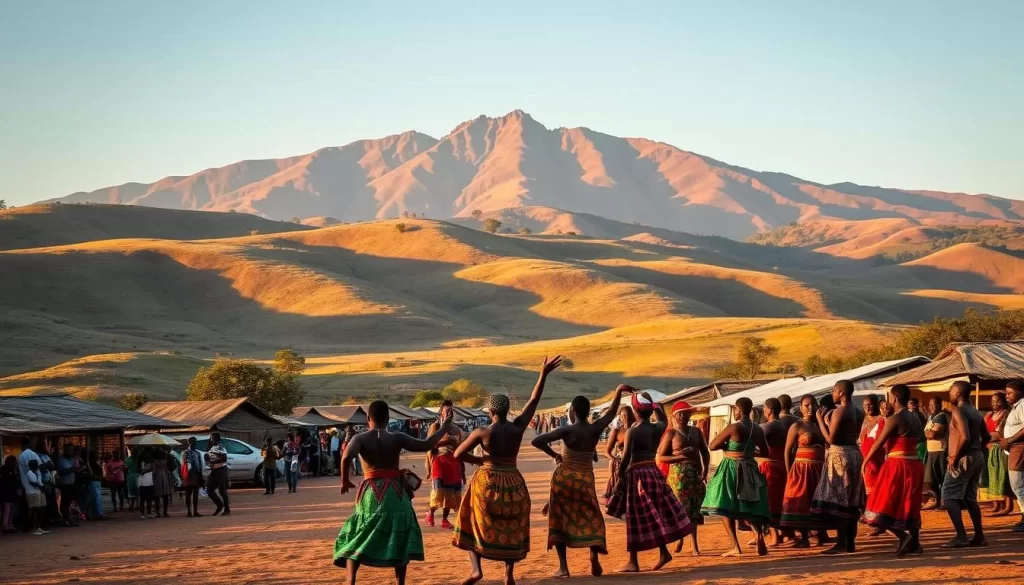
Conclusion: Embracing the Spirit of Eswatini Through Its Festivals
As you explore Eswatini’s vibrant cultural scene, you’ll discover a world of unique festivals that showcase the country’s rich heritage. By attending these events, you’ll connect with the Swazi people and their traditions in an authentic way. Eswatini’s festivals, such as the Umhlanga Reed Dance, offer a distinct cultural experience that differs from more touristy destinations like Cape Town. Combining festival experiences with wildlife viewing in national parks gives you a complete picture of Eswatini’s special charm, making your trip to this African continent country truly unforgettable.
The above is subject to change.
Check back often to TRAVEL.COM for the latest travel tips and deals.
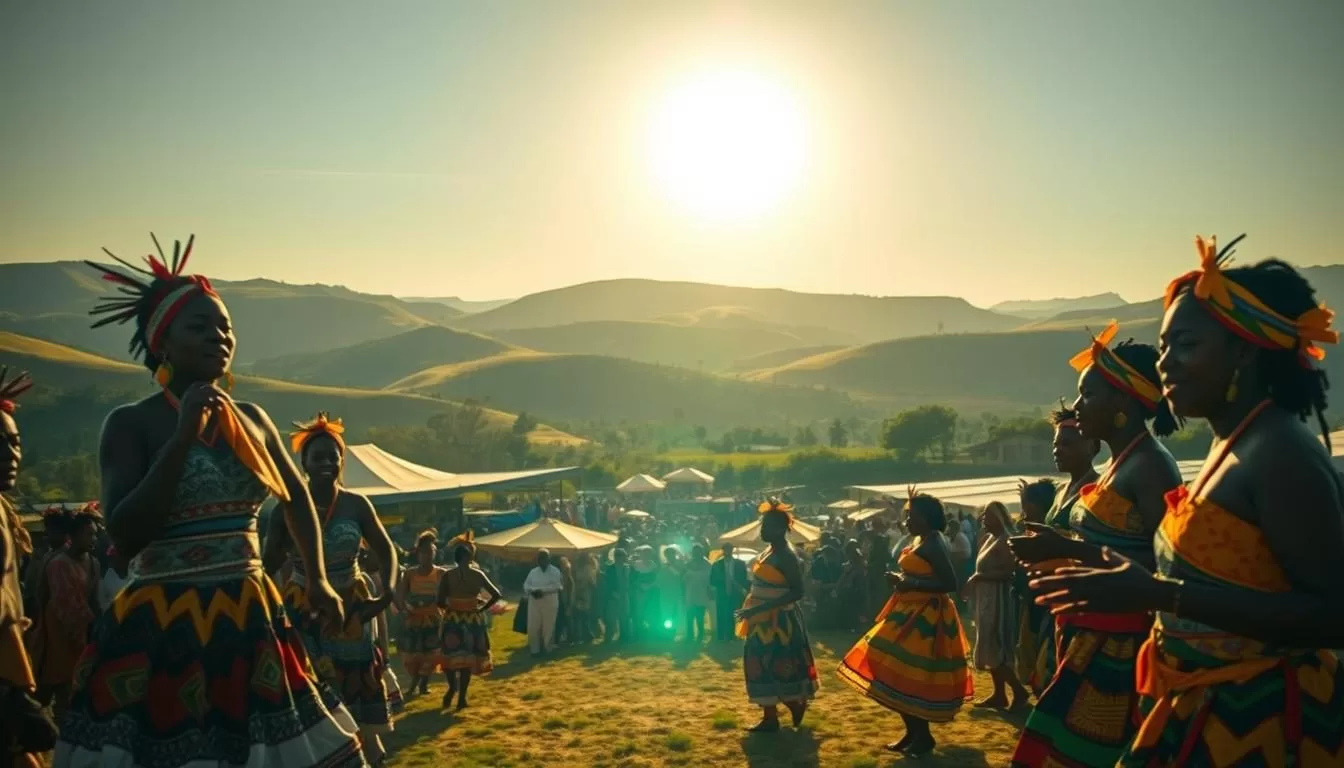

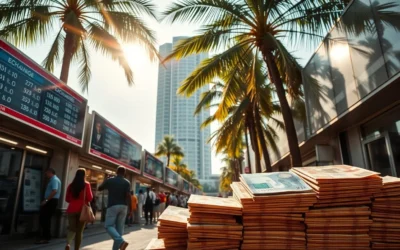
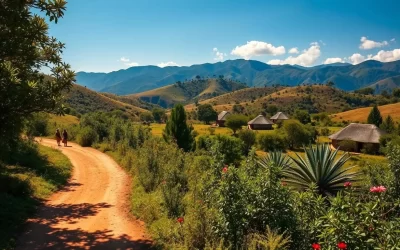

0 Comments